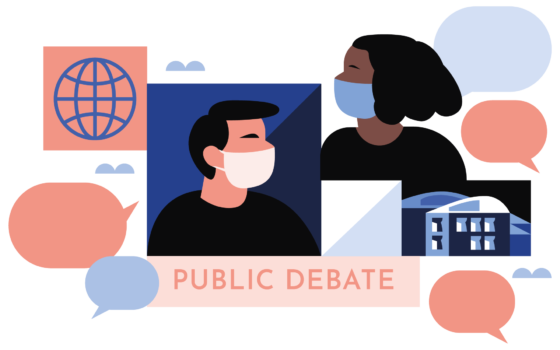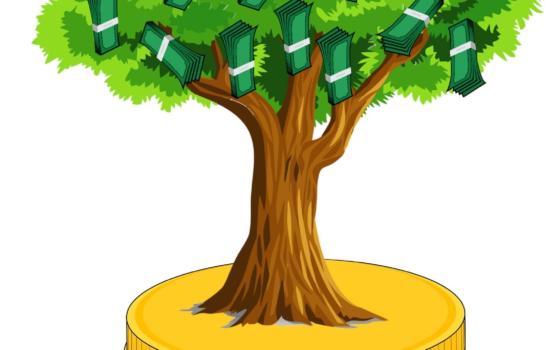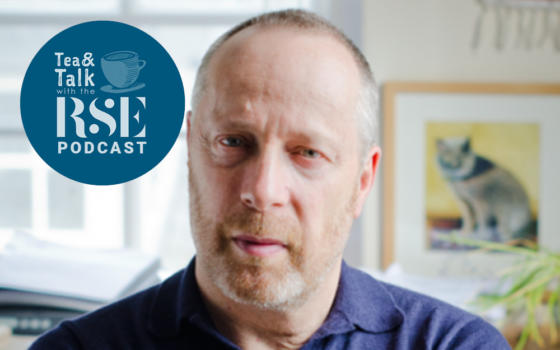The pandemic offers a stark reminder that Scotland needs to engage citizens and experts in long-term crisis planning. As Matthew Chrisman and Alice Konig recently highlighted, our definition of experts should be widened to include citizens’ expertise, including local knowledge and lived experience. Citizens and experts need to work together and, with policy makers, co-produce long-term planning and policies which are not only informed by science and evidence, but shaped by the communities and people they affect.
Citizens are well placed to gauge the impact of plans, policies and strategies on the most vulnerable in our society.
Efforts have been made by the Scottish Government to engage citizens through consultation, on Covid, the National Planning Framework and the Social Renewal Advisory Group for instance, and the use of democratic innovations, such as Scotland’s citizens’ assembly. Largely though, these processes follow a format where experts ‘inform’ citizens on complex issues and then citizens feed information to policy-makers. There is a disconnect between the citizens who are participating, the experts who provide much of the evidence, and the politicians who are making the decisions[i].
When it comes to long-term input from citizens on crisis management and planning, citizens need to work closely with experts and policy makers to ensure that their inputs are valued, but similarly so that decisions made by the government are accepted and adhered to. For long term planning, trust must be cultivated between the main actors[ii].
With the right support measures and acknowledgement of diverse circumstances, citizens can effectively contribute to social impact assessments, joining advisory and working groups with academics, experts, and political actors. Not as tokenistic nods to public engagement but to give real insights into lived experience, communities, and local areas. For this reason, Scotland should make greater use of citizen science.
Citizen science is when the public are actively involved in scientific research, contributing a wealth of data, by carrying out research.
This has been successfully carried out on bio-diversity, air quality and conservation. The scope of citizen science has been recognised by the UN and the European Commission and is gaining traction in Scotland, for instance by Scottish environmental agencies. This practice could be applied in anticipation of a crisis (such as this pandemic), and how the subsequent response affects families, local areas and communities. Citizen science could facilitate a partnership between policy-makers, experts and citizens.
In order to do this, citizens need to be upskilled, supported and shown how to undertake this important work.
Academics, particularly social scientists, are equipped to offer this guidance and work closely with citizens and communities to do this. Critically, as I wrote for the WiSE Centre for Economic Justice, in June 2020, care needs to be taken not to overburden the public. People face significant challenges in their everyday lives, now more than ever. Getting and keeping communities involved in long term decision making requires the use of flexible and innovative participatory processes, and support for communities to shape their own involvement.
By asking citizens to work closely with experts and policy makers, as equals rather than add-ons – and as collaborators of long term planning – we can change the way that decision making and crisis management is tackled. The impact of Covid has exacerbated existing inequalities, let’s make this a turning point for how we value citizen participation.
This article was written by Dr Ruth Lightbody, Member of the Public Debate & Participation working group.
[i] Lightbody, R. and Roberts, J. (2019) ‘Experts: The Politics of Evidence and Expertise in Democratic Innovation’ in Elstub, S. and Escobar, O. (eds) The Handbook of Democratic Innovation & Governance, Cheltenham: Edward Elgar Publishing.
[ii] Paul Cairney & Adam Wellstead (2020) COVID-19: effective policymaking depends on trust in experts, politicians, and the public, Policy Design and Practice, DOI: 10.1080/25741292.2020.1837466


